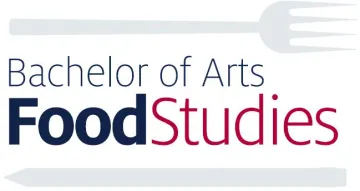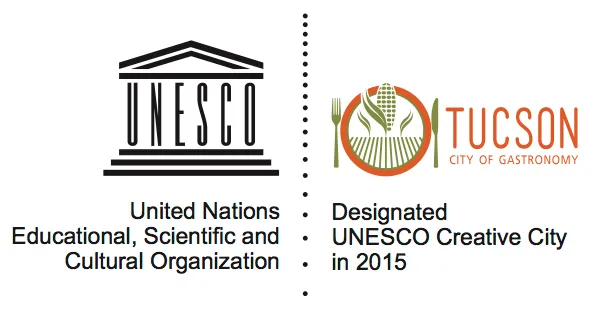Food Studies Degree with the College of Social and Behavioral Sciences

Are you passionate about food? Do you want to understand the social, political, environmental, and cultural dimensions of food? The School of Geography, Development, and Environment in the College of Social and Behavioral Sciences now offers an exciting degree option: the B.A. in Food Studies.
Students of this program will:
- Learn about the cultural and historical significance of food
- Explore the food scene in Tucson, a UNESCO City of Gastronomy
- Work to tackle food injustice
- Participate in hands-on learning, internships, and study abroad
Visit the Food Studies website.
The Journal of Agriculture, Food Systems, and Community Development
CRFS is an organizational shareholder in the JAFSCD Shareholder Consortium. The Journal of Agriculture, Food Systems, and Community Development (JAFSCD) is the world's first community-supported, open source journal. JAFSCD is the world's only peer-reviewed, transdisciplinary journal focused solely on food and farming-related community development. JAFSCD uses a double-blind peer review process, with expert reviewers who include researchers, scholars, and food systems professionals in the field.
JAFSCD emphasizes best practices and tools related to the planning, community economic development, and ecological protection o

f local and regional agriculture and food systems, and works to bridge the interests of practitioners and academics. Articles are immediately published online as they are accepted, but are aggregated into quarterly issues for indexing purposes. JAFSCD is an online-only journal; subscribers access the content online and may download or print any articles.
As the journal focuses on the practice of agriculture and food system development, empirical and methodological content are emphasized over the theoretical. Applied research-based papers, case studies, project post-mortems, effective strategies, impact analyses, new possibilities (problems-solving, opportunity-taking and the like) are examples of what professionals in government, the nonprofit sector, and private practice find helpful in their work.
Visit the JAFSCD website for more information.
Local First Arizona, The Good Food Film Series and the Good Food Finder Online Resource Platform
At Local First Arizona, our mission is to build a more resilient, diverse and sustainable Arizona economy. One pillar of our work is focused on strengthening our state’s local food system by working directly with the producers and growers, as well as by educating consumers about the importance of sourcing, buying and using local foods. Our current food programs include: a low-cost community commercial kitchen that offers food-entrepreneur training, The Good Food Film Series, the Coalition for Farmland Preservation, two annual food producer conferences, ongoing educational workshops, and the Good Food Finder online resource platform.
About Good Food Finder

Good Food Finder is Arizona’s voice for local food. Find locally grown and produced food in our online directory, as well as farmers, producers, markets, and services that enrich our vibrant food community. The Good Food Finder website is also an educational hub, providing resources on how you can join, grow, learn, and support Arizona’s local food movement.
Our priorities include:
- To connect consumers and wholesale buyers to Arizona’s locally-produced food
- Foster new opportunities for Arizona farmers, ranchers, and food crafters
- Stimulate food-based community economic development in Arizona
- Cultivate healthy eating habits and educated, empowered consumers
- Expand access to affordable, fresh and local food
To learn more about Local First Arizona’s food programs, click here or visit the Good Food Finder website.
Tucson City of Gastronomy

Tucson was selected to be the first UNESCO City of Gastronomy in the United States due to the region's lengthy agricultural history, heritage foods, sustainable agriculture, and vibrant culinary scene. Tucson has the longest agricultural history of any city in North America, extending back more than 4,000 years. As a result, the region has thriving food traditions and culinary distinctiveness (a unique blend of foods and traditions resulting from our multicultural history.) The city also fosters local food culture through food business start-ups, urban agriculture, food festivals, and the University of Arizona’s interdisciplinary food studies.
To be designated as a City of Gastronomy, a city must:
- show how its food system, food economy, and food culture can act as a driver for finding solutions to its main development challenges
- describe how its cultural and culinary assets played an important role in the city’s history and economic development
- list the food-related festivals, conferences, and special events that are aimed at professionals, the public, and tourists
- identify programs, institutions, and organizations that support businesses and employment in the culinary industry
- summarize food-related research being conducted
- identify incubator programs and spaces for culinary businesses
- present examples of food-related programs and projects that support vulnerable social groups and those that strengthen connections between the city, the private sector, and academia
- list the policies, initiatives, and international exchanges and partnerships implemented by the city over the last five years that support the local food system and culinary industry
- develop programming that provides opportunities to connect with other cities in the UNESCO Creative Cities Network
Visit the Tucson City of Gastronomy website.
Food Studies at the American University of Rome

While this M.A. is fully accredited in the United States, the campus and the program are firmly rooted in Rome, Italy – a location widely viewed as the heart of food policy and sustainability developments. Rome serves as the headquarters of the United Nations (U.N.) agencies dealing with food security and sustainable development: FAO ( Food and Agriculture Organization), IFAD (International Fund for Agricultural Development), WFP (World Food Programme), and Bioversity International (a global research-for-development organization).
Through the program, M.A. students experience:
- A social science curriculum focused on the food and agriculture system, its sustainability, ethics, governance, and policies;
- Experiential learning through work on a small-scale farm adjacent to the old Appian Way;
- Contacts with professionals with a wealth of international experience and active engagement with Italy’s vibrant food/farming community and its rich food culture and agriculture.
AUR’s ties with the Rome-based U.N. agencies means that the topics studied on campus are frequently complemented by on-site visits and contacts with professionals whereby students can see the theory behind their specialization put into action.
Learn more about the M.A. program in Food Studies by visiting AUR’s website.
Centre for Agroecology, Water and Resilience

The Centre for Agroecology, Water and Resilience (CAWR) at Coventry University is driving innovative transdisciplinary research on equitable, sustainable and resilient food and water systems. New knowledge, policies, and
technologies are needed to develop more just and ecologically sustainable societies in the context of accelerating rapid biodiversity loss, increasing inequities and market volatility. Taking a transdisciplinary and participatory approach, CAWR’s research combines and mobilises different knowledge systems – from the natural and social sciences to the knowledge of indigenous people and citizens. Transformative research on agroecology, water and food sovereignty is carried out with partners in the UK, Europe, Africa, Asia and Latin America. CAWR’s research and public engagement work helps to enable inclusive community and socio-ecological resilience to increasingly rapid and unpredictable change, including climate change, new pandemics, and economic exclusion.
Basic Needs Coalition
The University of Arizona’s Basic Needs Initiative is comprised of the following programs and resources for students.

- Campus Pantry
- Dean of Students Office
- Childcare Choice (UA Childcare Choice-Student)
- Counseling and Psych Services (CAPS)
- Department of Economic Security Assistance
- COVID-19 Support (Free Food/Meals)

